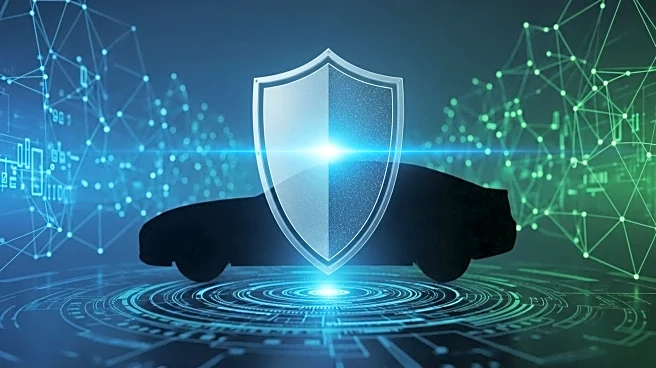What is the story about?
What's Happening?
Jaguar Land Rover (JLR) experienced a cyber attack attributed to the Scattered Spider group, known for targeting major retailers. The attack coincided with the September vehicle registration period, causing disruptions in dealerships' ability to register vehicles and leading to delivery backlogs. JLR's production of approximately 1,000 vehicles daily was affected, resulting in significant operational and financial impacts. Despite the challenges, JLR's swift response, including isolating impacted systems, exemplified effective incident management practices. The incident highlights the importance of adopting zero trust architecture in manufacturing operations.
Why It's Important?
The cyber attack on JLR underscores the vulnerabilities in traditional perimeter-based security models and the need for zero trust architecture. This approach assumes networks may already be compromised and focuses on rapid containment and response. The incident serves as a wake-up call for the manufacturing industry, which has been the most attacked sector for four consecutive years. The financial and operational disruptions experienced by JLR highlight the potential costs of cyber attacks, emphasizing the need for robust security measures to protect critical infrastructure and maintain business continuity.
What's Next?
JLR's experience is likely to influence other companies in the manufacturing sector to adopt zero trust architecture as a primary security model. This shift involves moving away from traditional defenses and focusing on rapid damage containment. The industry may see increased investment in cybersecurity measures, including network monitoring and incident response capabilities. As cyber threats continue to evolve, companies will need to prioritize security to protect their operations and minimize the impact of future attacks.














